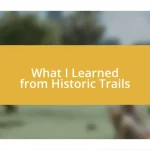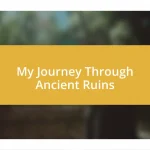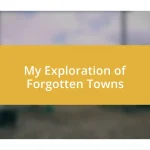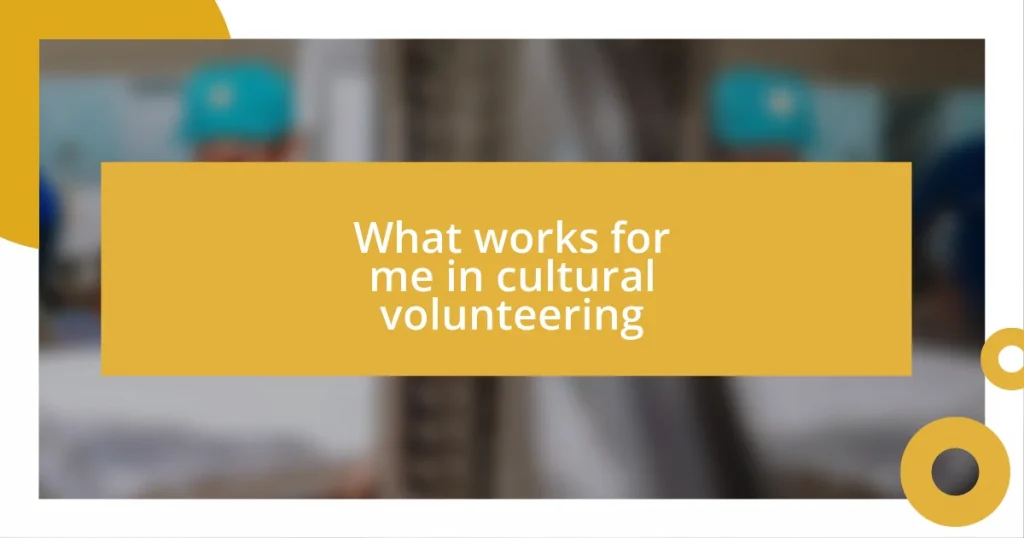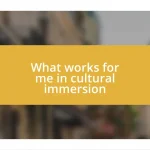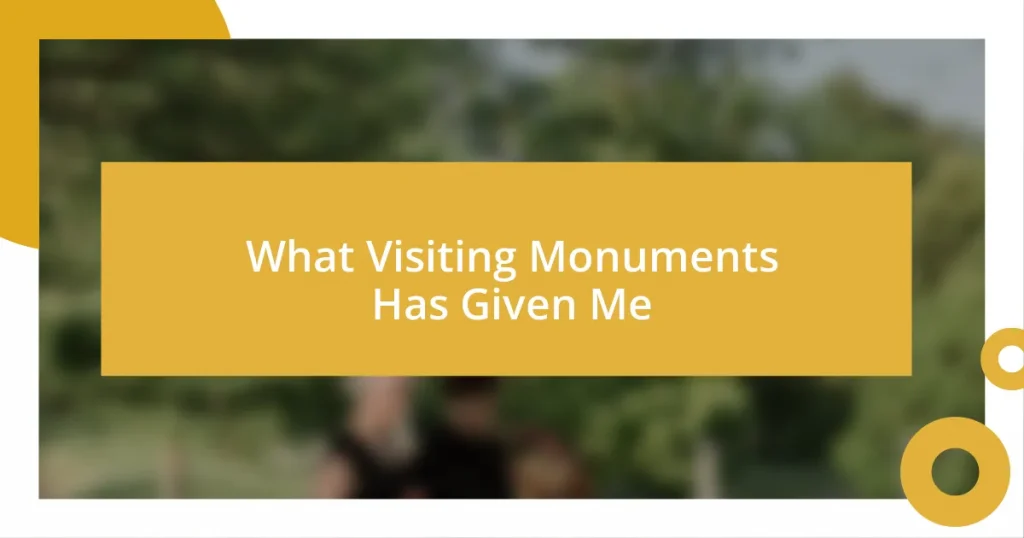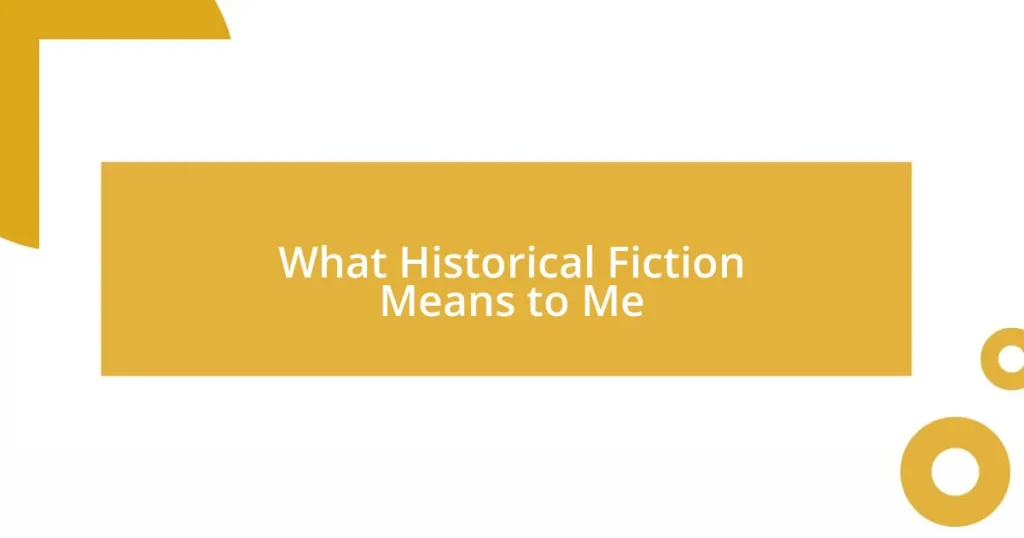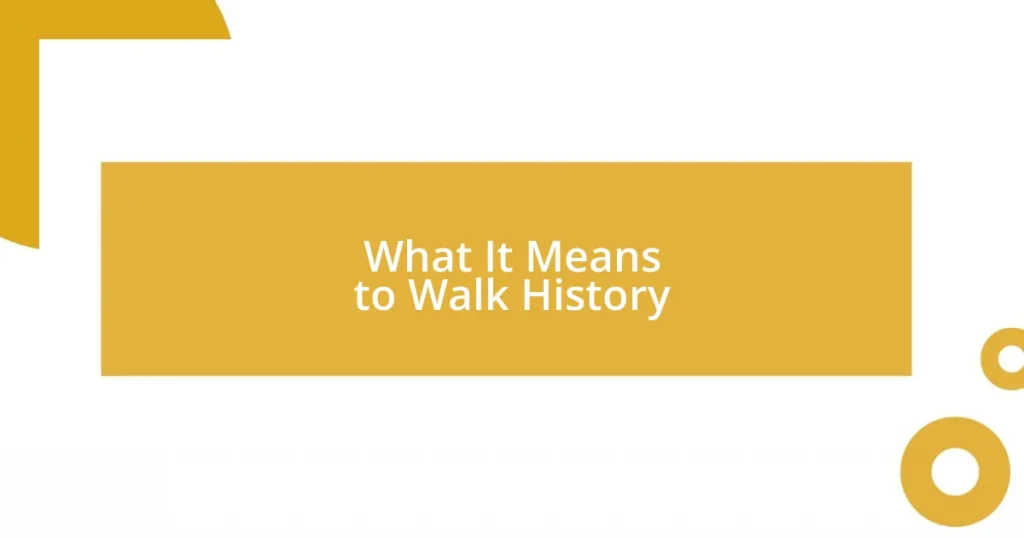Key takeaways:
- Cultural volunteering fosters personal growth, empathy, and community connections, enriching understanding of diverse cultures through shared experiences.
- Successful engagement in cultural volunteering involves building genuine relationships, seeking feedback, and maintaining a clear sense of purpose.
- Overcoming challenges, such as language barriers and misunderstandings, requires creativity, patience, and reflection to transform experiences and enhance cultural sensitivity.
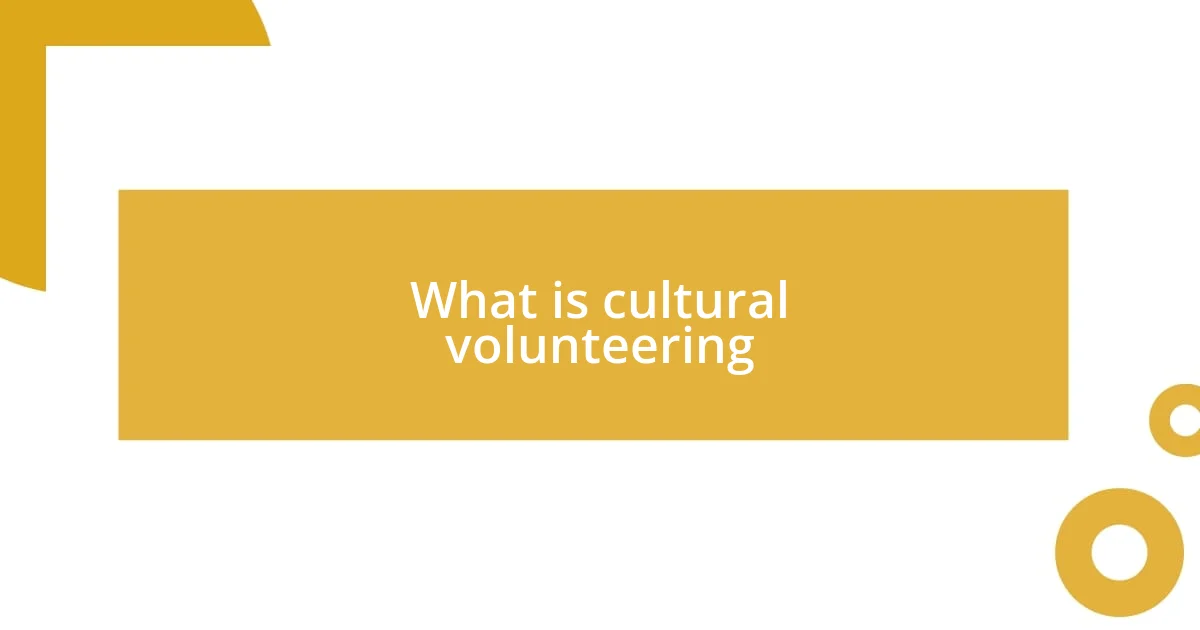
What is cultural volunteering
Cultural volunteering is an enriching experience where individuals dedicate their time and skills to promote and preserve cultural activities and heritage. I remember my first cultural project—helping out at a local arts festival. As I painted banners, I felt a connection to the community that I had never experienced before. It was more than just tasks; it was a chance to celebrate our shared cultural identity. Have you ever thought about how engaging with your community can deepen your understanding of its story?
At its core, cultural volunteering often involves working with arts organizations, local heritage sites, or community groups to foster appreciation for diverse cultures. I found that every moment spent planning events or leading workshops brought immense joy not just to others, but to myself. It’s fascinating how giving back can also illuminate new perspectives on the world around us. Isn’t it interesting how the act of volunteering can transform both the giver and the receiver?
This type of volunteering isn’t just about support; it cultivates dialogue and fosters connections among people from different backgrounds. Each interaction, every shared laugh, or even a thoughtful discussion makes a lasting impact. I’ll never forget the heartfelt conversations I had with fellow volunteers from various cultures. These moments made me realize that cultural volunteering is a unique blend of service, learning, and genuine connection— an experience worth embracing.
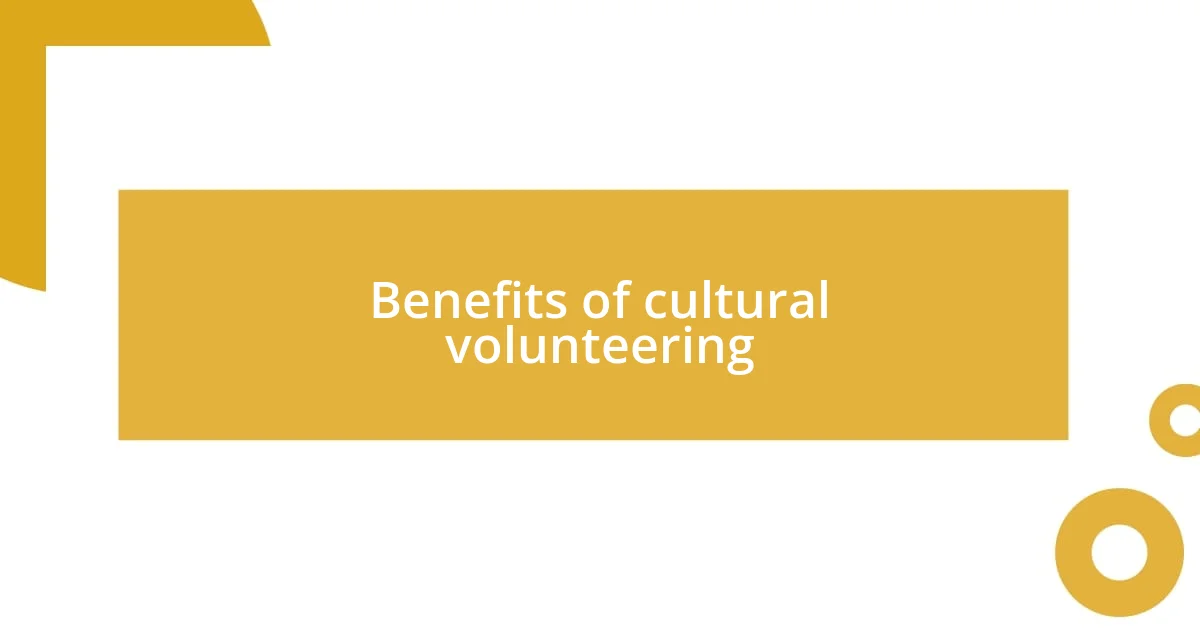
Benefits of cultural volunteering
Cultural volunteering opens up a world of benefits that extend far beyond just helping others. From my experience, this kind of volunteering has enhanced my empathy and understanding of diverse perspectives. One particularly memorable moment for me was during a community workshop where participants shared their personal stories. Listening to their journeys made me acutely aware of the challenges they faced, and I felt a profound connection with each narrative shared. This isn’t just about giving; it’s about receiving invaluable lessons on resilience and hope.
Here are some key benefits I’ve observed:
- Personal Growth: Engaging deeply with different cultures fosters self-awareness and encourages personal development in unexpected ways.
- Skill Enhancement: Volunteering enables you to learn new skills, from organizational abilities to creative expressions, that can be beneficial in various areas of life.
- Community Connection: Strengthening ties within your community allows you to forge friendships that bridge cultural divides, enriching both your social life and sense of belonging.
- Cultural Appreciation: Immersing yourself in diverse traditions and practices broadens your horizons, making you more open-minded and culturally aware.
- Empathy Building: By encountering different life experiences, you cultivate a deeper sense of compassion that can impact your daily interactions.
I can wholeheartedly say that cultural volunteering has transformed my worldview, encouraging me to see the beauty in differences while also recognizing the common threads that unite us all. Each experience adds a unique layer to my understanding of humanity. Isn’t it fascinating how something as simple as volunteering can reshape our perspective on culture and community?
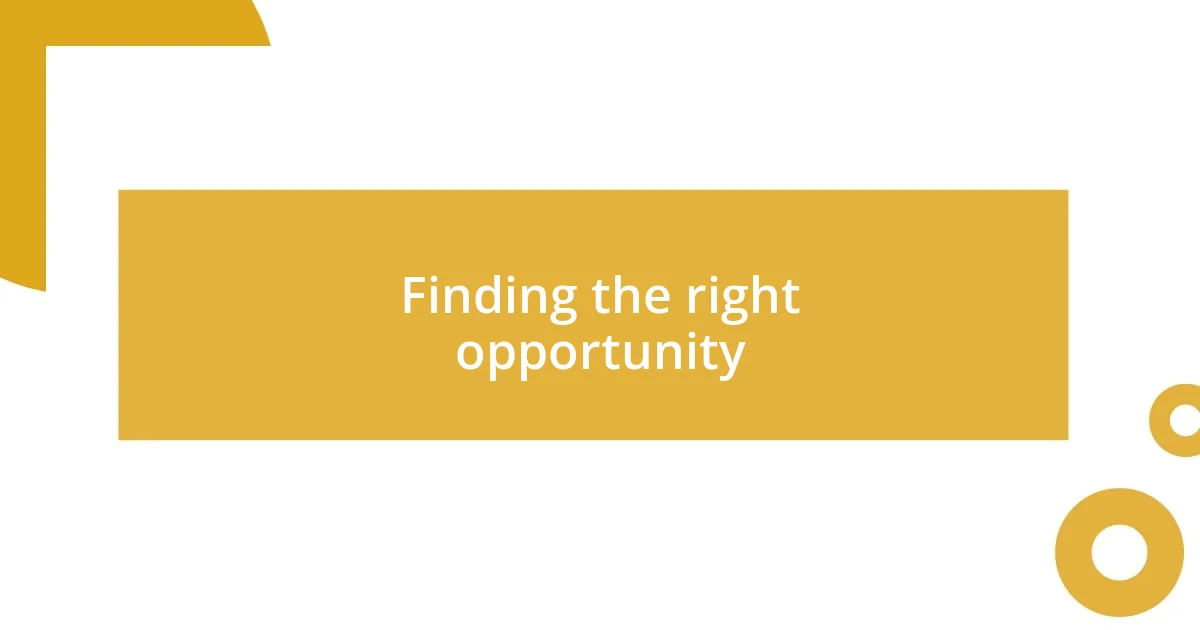
Finding the right opportunity
When searching for the right cultural volunteering opportunity, it’s essential to consider your passions and interests. For me, exploring avenues aligned with my love for the arts made the experience so much more fulfilling. I remember sifting through various options and finding a community theater group that sparked my enthusiasm. Have you ever felt that immediate connection to a cause? That’s precisely what happened when I stumbled upon opportunities that resonated with my values.
In addition to personal interests, I believe it’s crucial to think about your skills. Reflecting on what I could offer helped me choose a volunteering role that not only benefitted others but also allowed me to grow. For instance, my background in event planning made me a natural fit for organizing cultural festivals. Have you considered how your skills can enhance the impact of your volunteering? Merging what you are good at with the right cause can lead to a richer experience.
Lastly, don’t underestimate the power of community. Connecting with local organizations or groups that embody your values can be transformative. I recall attending a meet-and-greet event that allowed me to meet fellow volunteers, fostering a network of like-minded individuals passionate about cultural heritage. How often do we miss those chances to connect? Engaging with others not only strengthens your commitment but also opens doors to exciting collaborations and friendships.
| Factors to Consider | Impact on Experience |
|---|---|
| Personal Interests | Enhances engagement and satisfaction |
| Skills & Abilities | Increases effectiveness and personal growth |
| Community Connection | Fosters relationships and collaboration |
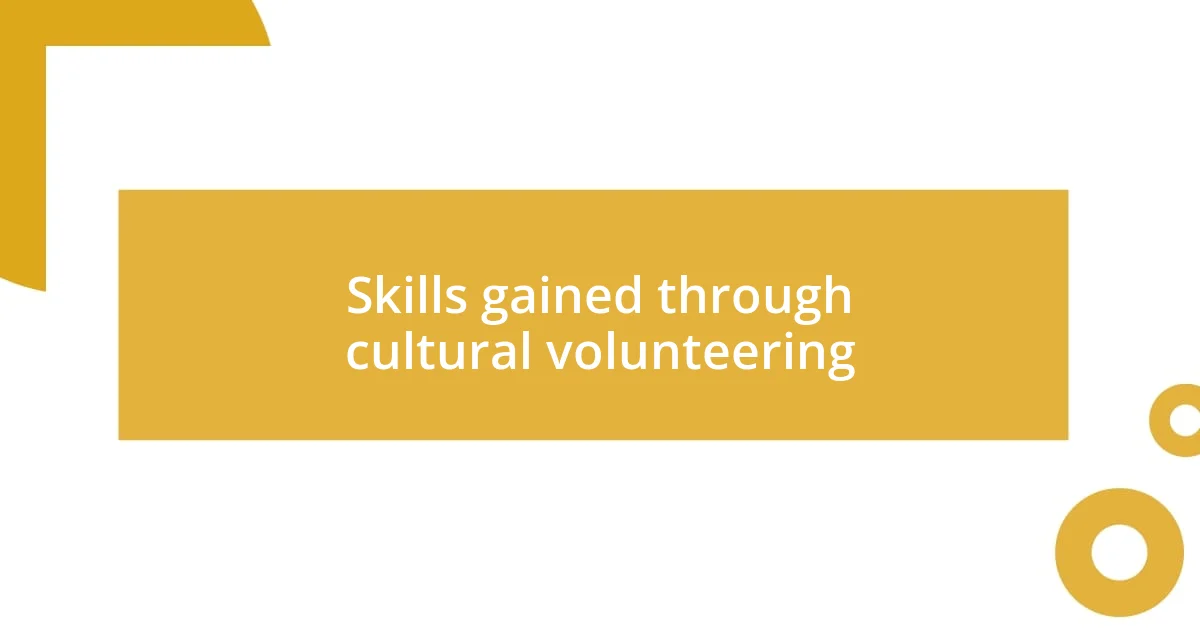
Skills gained through cultural volunteering
Engaging in cultural volunteering has allowed me to develop a myriad of skills that extend well beyond the immediate tasks at hand. For instance, I vividly remember coordinating a multicultural festival, where I not only honed my organizational skills but also learned to communicate effectively with people from various backgrounds. Has it ever struck you how critical effective communication can be, especially when cultures intersect? It’s an art that truly nurtures understanding.
While working alongside artists from different traditions, I found my creative problem-solving skills coming to life in unexpected ways. Once, I faced a last-minute venue change, and it forced me to think on my feet. That day, I realized adaptability is another vital skill that cultural volunteering instills in us. How often do we get a chance to apply that in our daily lives? It can be exhilarating to navigate challenges while remaining mindful of the diverse perspectives around us.
Moreover, I discovered that cultural volunteering nurtures patience and emotional intelligence. During a workshop with teens from various backgrounds, there were moments of tension and misunderstandings. Instead of rushing to resolve them, I learned to embrace discussions and allow space for emotions. Isn’t it remarkable how nurturing patience can lead to deeper connections? These experiences have profoundly shaped how I interact with those around me, teaching me that compassion is a skill worth developing.
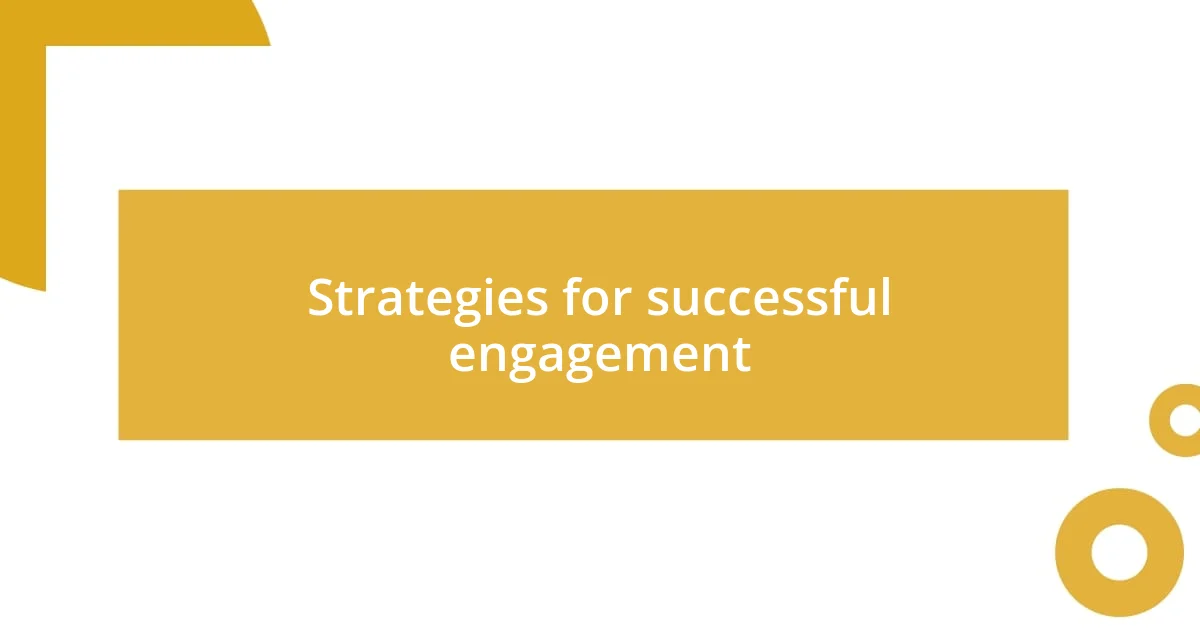
Strategies for successful engagement
Fostering genuine connections with the people you’re working alongside is a core strategy for successful engagement in cultural volunteering. I vividly recall a time when I volunteered at a local art installation. At first, I felt like an outsider, but taking the time to share stories over lunch helped break the ice. Have you ever felt that shift from stranger to teammate? Building rapport not only enhances collaboration but also deepens the overall experience, making every challenge more manageable.
Another effective strategy involves actively seeking feedback and embracing a learning mindset. During a project I led, I purposefully invited participants to share their thoughts. One volunteer’s suggestion about improving our outreach efforts turned the entire project around. It made me wonder, how often do we genuinely ask for input? This openness cultivates an atmosphere of respect and innovation, making everyone feel valued in the process.
Lastly, maintaining a clear sense of purpose can greatly enhance your commitment. In one of my roles, I found inspiration in the mission statement of the organization I was part of. I even created reminders of that purpose—little slogans on my worktable. What drives your passion for volunteering? Keeping your “why” close helps me navigate tough days and renews my motivation to make a difference.
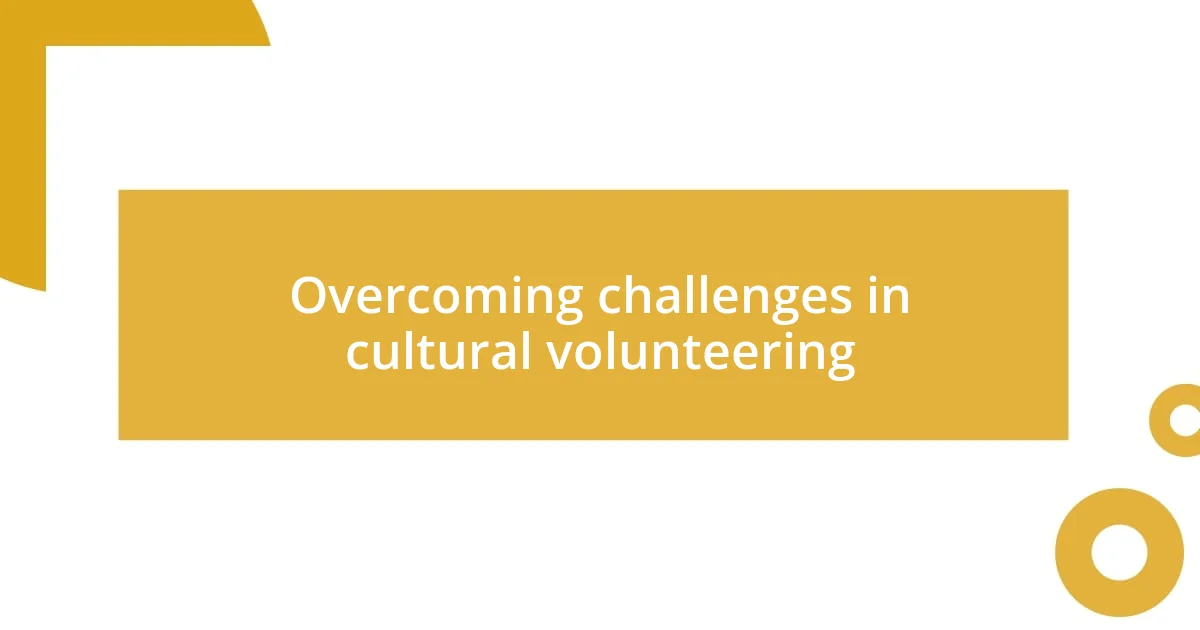
Overcoming challenges in cultural volunteering
Engaging in cultural volunteering can present various challenges, and I’ve experienced my fair share. For instance, during a project involving immigrant artisans, I encountered language barriers that initially felt daunting. Was it frustrating? Absolutely. But rather than allowing it to halt progress, we found creative ways to communicate, using visuals and demonstrations. That experience was a testament to the power of creativity when tackling obstacles together.
Emotions often run high in culturally diverse settings, which can lead to misunderstandings. I once facilitated a workshop where a simple misinterpretation escalated into a heated debate. It could have derailed the entire session, but I remembered to breathe and created a safe space for dialogue. Isn’t it interesting how a commitment to understanding can turn potential conflict into an opportunity for growth? After that incident, I learned that fostering an environment of openness and empathy is key to overcoming these challenges.
Time management has also been a significant hurdle in my cultural volunteer experiences. Juggling different tasks while coordinating events can easily feel overwhelming. I recall one hectic week when everything seemed to be due at once, and I felt like I was chasing my tail. To regain control, I started blocking out specific times for each task and prioritized what truly mattered. Have you ever felt like you were buried under a mountain of responsibilities? I found that taking a step back and creating a structured plan was instrumental in transforming chaos into clarity.
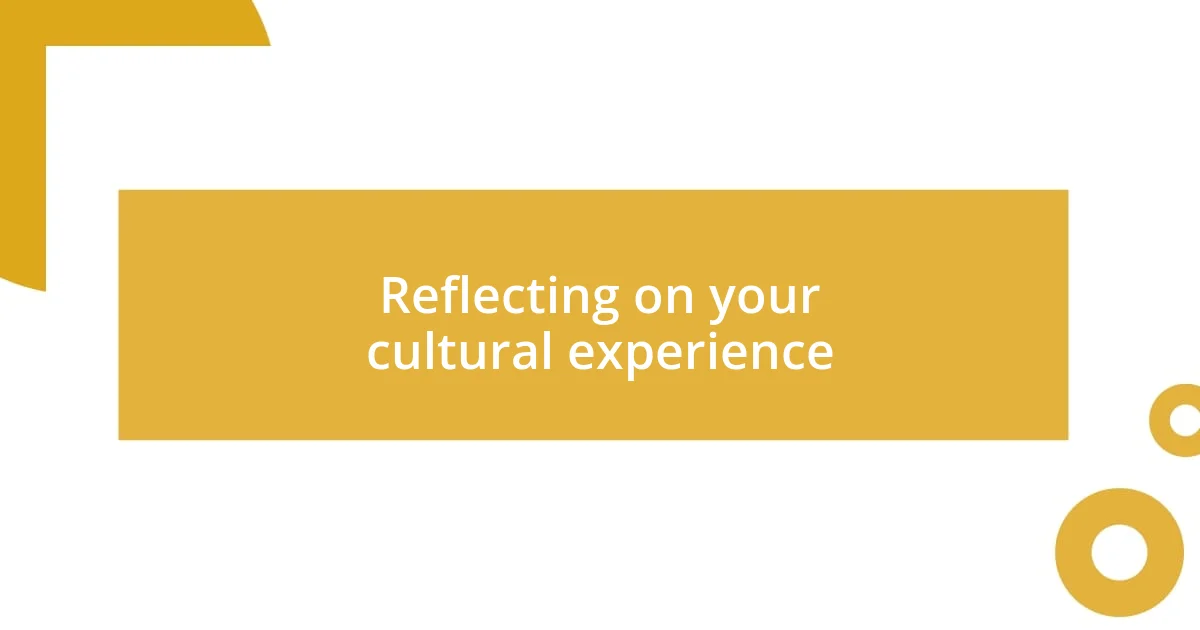
Reflecting on your cultural experience
Reflecting on cultural experiences is a powerful tool for growth. After a recent project where I facilitated cultural workshops, I took time to journal my thoughts. It surprised me how revisiting those moments revealed layers I hadn’t initially noticed, like the way humor bridged gaps between participants. Have you ever had an experience that transformed with hindsight? These reflections not only cement memories but also inform how I approach future engagements.
As I sat down with fellow volunteers post-project, we shared stories that unearthed profound realizations. One team member’s perspective on overcoming cultural stereotypes shifted my understanding of our collective mission. That moment made me ponder: how often do we truly listen to the stories of others? This exchange emphasized the importance of reflection and dialogue, showcasing how shared experiences can foster deeper connections and mutual respect.
Sometimes, I revisit the challenges we faced during the last event. One moment that stands out is when we struggled with differing cultural approaches to feedback. It felt uncomfortable initially, but eventually, we turned that awkwardness into a valuable lesson about openness and respect. When encountering conflict, I ask myself if I’m fully understanding the various cultural lenses present. Reflecting on these challenges not only helps me grow, but it reinforces the significance of cultural sensitivity in my volunteering journey.




